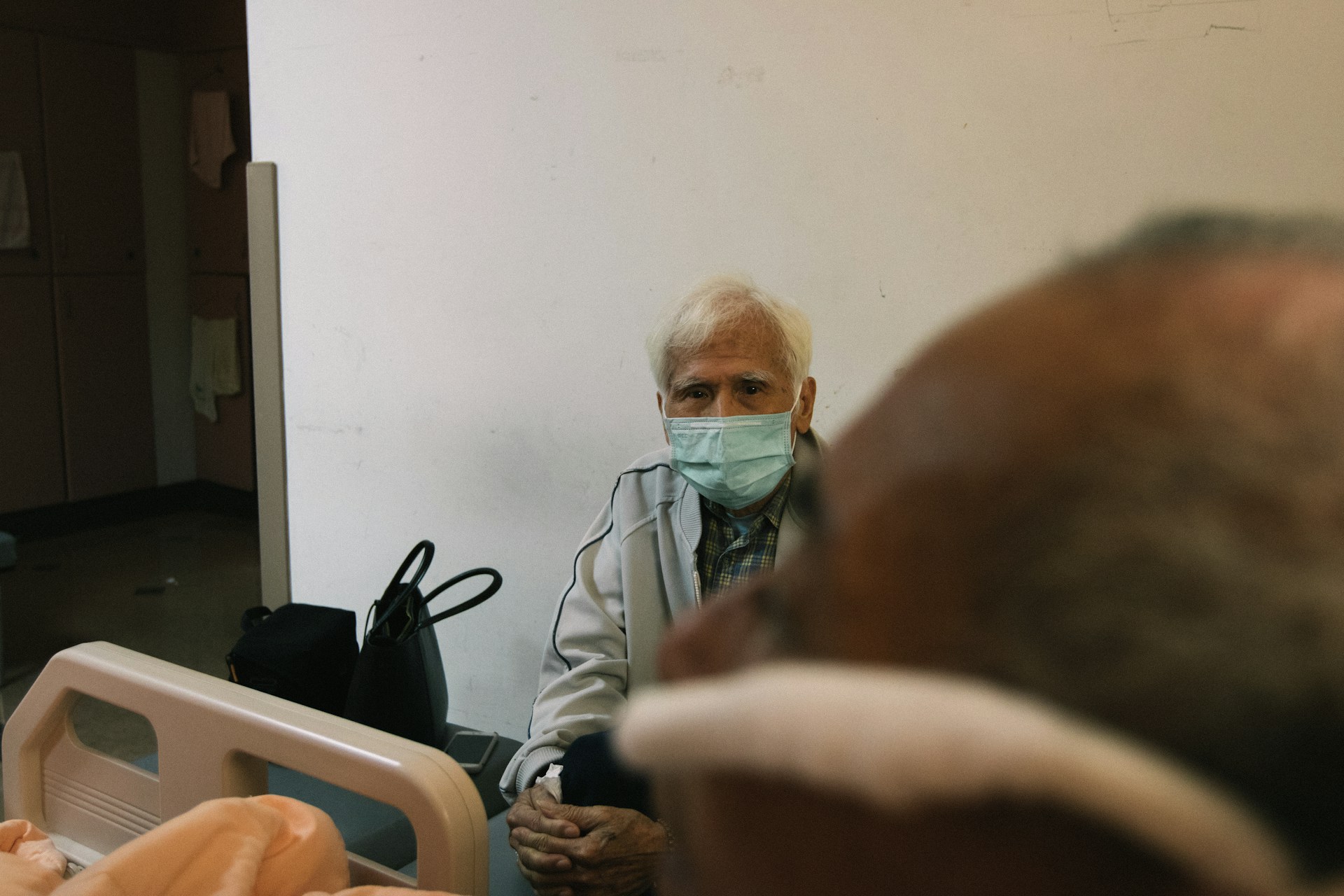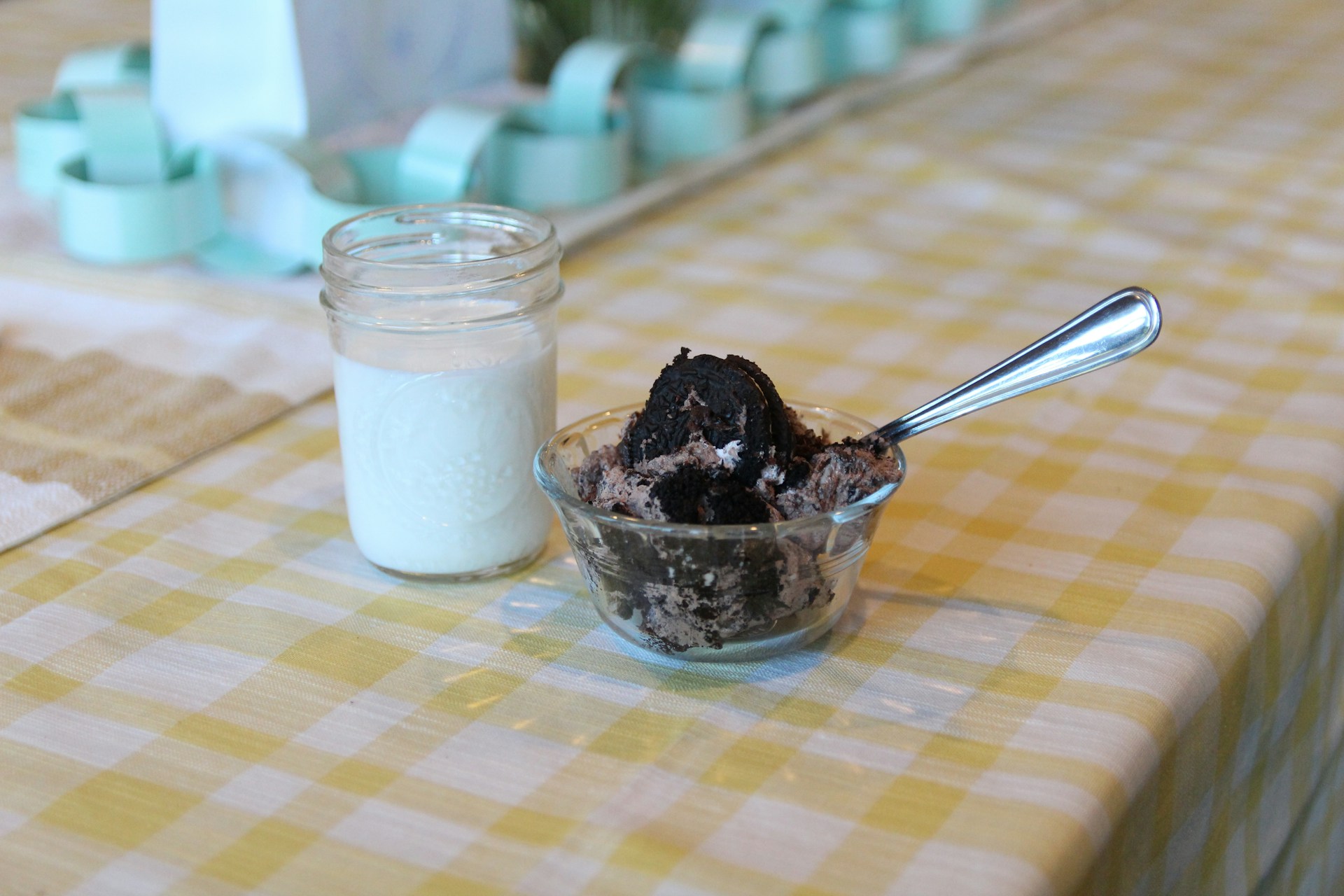The Effects of Food Intake and Eating Behavior on Sleep Quality in Adolescents
Downloads
Background: Food and eating behaviors can be related to nutrition as well as sleep for healthy society.
Objectives: The aim of the study is to examine the eating behaviors of adolescents and the effect of some foods on sleep quality in adolescence.
MethodS: The study was carried out as a survey model of 580 adolescents in Konya, Turkey. The questionnaire consists of demographic features and anthropometric measurements, Pittsburg Sleep Quality Index (PSQI), Eating Behavior Scale (EBS), and 24-hour recalled food consumption record used for evaluation of daily nutrient intakes. The SPSS (ver. 22) software was used to analyze the data.
Results: PSQI score was 5.79±0.17 in girls and 5.27±0.15 in boys, with a significant difference (p=0.022) and sleep quality was found to be good in 42.4% and poor in 57.6%. Sleep duration (p=0.011), sleep disturbances (p=0.002), daytime dysfunction (p=0.000) were differed by gender. The mean of EBS score was found to be 211.04±61.32, differed between girls and boys (p<0.05). Also, the EBS score differed by night eating (p=0.000). Total energy (p=0.001), protein (p=0.001), carbohydrate (p=0.003), B1 (p=0.028), B6 (p=0.006), niacin (p=0.000), folic acid (p=0.001), B12 (, Zn, and Fe daily intake changed between girls and boys (p<0.05).
Conclusion: Adolescents with poor sleep quality, poor eating behavior should consider night eating is to determine if it may be associated with their sleep.
Sarangi, M. & Dus, M. Crème de la Créature: Dietary Influences on Behavior in Animal Models. Frontiers in Behavioral Neuroscience 15, (2021).
Dunietz, G. L. et al. Parallel Assessment Challenges in Nutritional and Sleep Epidemiology. American Journal of Epidemiology 190, 954–961 (2021).
Frank, S. et al. Diet and Sleep Physiology: Public Health and Clinical Implications. Frontiers in Neurology 8, (2017).
Kansra, A. R., Lakkunarajah, S. & Jay, M. S. Childhood and Adolescent Obesity: A Review. Frontiers in Pediatrics 8, (2021).
Erenoglu, N., Ayranci, U. & Son, O. Eating habits and lifestyle in a group Turkish primary education children. Health 05, 486–495 (2013).
Kruger, A. K., Reither, E. N., Peppard, P. E., Krueger, P. M. & Hale, L. Do sleep-deprived adolescents make less-healthy food choices? British Journal of Nutrition 111, 1898–1904 (2014).
Cappuccio, F. P. et al. Meta-Analysis of Short Sleep Duration and Obesity in Children and Adults. Sleep 31, 619–626 (2008).
Min, C. et al. The association between sleep duration, sleep quality, and food consumption in adolescents: A cross-sectional study using the Korea Youth Risk Behavior Web-based Survey. BMJ Open 8, e022848 (2018).
Zaborskis, A., Lagunaite, R., Busha, R. & Lubiene, J. Trend in eating habits among Lithuanian school-aged children in context of social inequality: three cross-sectional surveys 2002, 2006 and 2010. BMC Public Health 12, 52 (2012).
French, S. A., Story, M. & Jeffery, R. W. Environmental Influences on Eating and Physical Activity. Annual Review of Public Health 22, 309–335 (2001).
Paruthi, S. et al. Consensus Statement of the American Academy of Sleep Medicine on the Recommended Amount of Sleep for Healthy Children: Methodology and Discussion. Journal of Clinical Sleep Medicine 12, 1549–1561 (2016).
Watson, N. F. et al. Recommended Amount of Sleep for a Healthy Adult: A Joint Consensus Statement of the American Academy of Sleep Medicine and Sleep Research Society. SLEEP (2015) doi:10.5665/sleep.4716.
Sleep Disorders and Sleep Deprivation. (National Academies Press, 2006). doi:10.17226/11617.
Cleator, J., Abbott, J., Judd, P., Sutton, C. & Wilding, J. P. H. Night eating syndrome: implications for severe obesity. Nutrition & Diabetes 2, e44–e44 (2012).
Duraccio, K. M., Krietsch, K. N., Chardon, M. L., van Dyk, T. R. & Beebe, D. W.
Poor sleep and adolescent obesity risk: a narrative review of potential mechanisms
. Adolescent Health, Medicine and Therapeutics Volume 10, 117–130 (2019).Soltanieh, S., Solgi, S., Ansari, M., Santos, H. O. & Abbasi, B. Effect of sleep duration on dietary intake, desire to eat, measures of food intake and metabolic hormones: A systematic review of clinical trials. Clinical Nutrition ESPEN 45, 55–65 (2021).
Beccuti, G. & Pannain, S. Sleep and obesity. Current Opinion in Clinical Nutrition and Metabolic Care 14, 402–412 (2011).
van Cauter, E. & Knutson, K. L. Sleep and the epidemic of obesity in children and adults. European Journal of Endocrinology 159, S59–S66 (2008).
Zimberg, I. Z. et al. Short sleep duration and obesity: mechanisms and future perspectives. Cell Biochemistry and Function 30, 524–529 (2012).
Knutson, K. L. & van Cauter, E. Associations between Sleep Loss and Increased Risk of Obesity and Diabetes. Annals of the New York Academy of Sciences 1129, 287–304 (2008).
Weiss, A. et al. The Association of Sleep Duration with Adolescents' Fat and Carbohydrate Consumption. Sleep 33, 1201–1209 (2010).
Baron, K. G., Reid, K. J., Horn, L. van & Zee, P. C. Contribution of evening macronutrient intake to total caloric intake and body mass index. Appetite 60, 246–251 (2013).
Dashti, H. S., Scheer, F. A., Jacques, P. F., Lamon-Fava, S. & Ordovás, J. M. Short Sleep Duration and Dietary Intake: Epidemiologic Evidence, Mechanisms, and Health Implications. Advances in Nutrition 6, 648–659 (2015).
Çakir, B. et al. The relationship between sleep duration, sleep quality and dietary intake in adults. Sleep and Biological Rhythms 18, 49–57 (2020).
Frank, S. et al. Diet and Sleep Physiology: Public Health and Clinical Implications. Frontiers in Neurology 8, (2017).
Peuhkuri, K., Sihvola, N. & Korpela, R. Dietary factors and fluctuating levels of melatonin. Food & Nutrition Research 56, 17252 (2012).
Nagashima, S. et al. Can tryptophan supplement intake at breakfast enhance melatonin secretion at night? Journal of Physiological Anthropology 36, 20 (2017).
Lavialle, M. et al. An (n-3) Polyunsaturated Fatty Acid–Deficient Diet Disturbs Daily Locomotor Activity, Melatonin Rhythm, and Striatal Dopamine in Syrian Hamsters. The Journal of Nutrition 138, 1719–1724 (2008).
Parr, E. et al. Effects of Providing High-Fat versus High-Carbohydrate Meals on Daily and Postprandial Physical Activity and Glucose Patterns: a Randomised Controlled Trial. Nutrients 10, 557 (2018).
Binks, H., E. Vincent, G., Gupta, C., Irwin, C. & Khalesi, S. Effects of Diet on Sleep: A Narrative Review. Nutrients 12, 936 (2020).
Black, K. E. et al. Adding omega-3 fatty acids to a protein-based supplement during pre-season training results in reduced muscle soreness and the better maintenance of explosive power in professional Rugby Union players. European Journal of Sport Science 18, 1357–1367 (2018).
Gammone, M., Riccioni, G., Parrinello, G. & D'Orazio, N. Omega-3 Polyunsaturated Fatty Acids: Benefits and Endpoints in Sport. Nutrients 11, 46 (2018).
O'Callaghan, F., Muurlink, O. & Reid, N. Effects of caffeine on sleep quality and daytime functioning. Risk Management and Healthcare Policy Volume 11, 263–271 (2018).
Roehrs, T. & Roth, T. Caffeine: Sleep and daytime sleepiness. Sleep Medicine Reviews 12, 153–162 (2008).
Heatherley, S. v. Caffeine withdrawal, sleepiness, and driving performance: What does the research really tell us? Nutritional Neuroscience 14, 89–95 (2011).
Drake, C., Roehrs, T., Shambroom, J. & Roth, T. Caffeine Effects on Sleep Taken 0, 3, or 6 Hours before Going to Bed. Journal of Clinical Sleep Medicine 09, 1195–1200 (2013).
Snel, J. & Lorist, M. M. Effects of caffeine on sleep and cognition. in 105–117 (2011). doi:10.1016/B978-0-444-53817-8.00006-2.
Faul, F., Erdfelder, E., Lang, A.-G. & Buchner, A. G*Power 3: A flexible statistical power analysis program for the social, behavioral, and biomedical sciences. Behavior Research Methods 39, 175–191 (2007).
Arnab, R. Stratified Sampling. in Survey Sampling Theory and Applications 213–256 (Elsevier, 2017). doi:10.1016/B978-0-12-811848-1.00007-8.
WHO. WHO Child Growth Standards: Length/Height for-Age, Weight-for-Age, Weight-for-Length, Weight-for-Height and Body Mass Index-for-Age: Methods and Development. WHO Multicentre Growth Reference Study Group (2006).
Turkey Dietary Guideline. (2016).
Agargun, M. Y., Kara, H. & Anlar, Ö. Pittsburgh Uyku Kalitesi Ä°ndeksi'nin geçerliği ve güvenirliği. Turk Psikiyatr Dergisi 7, 107–115 (1996).
Özdoğan, Y. Adölesanların Yeme Davranışı ve Beslenme Bilgilerini Saptamaya Yönelik Ölçek Geliştirme Çalışması. (2013).
Bahar, A. et al. The prevalence of obesity in adolescent age group and its relationship with dietary habbits, family history, anthropometric measurements and muscle analysis. Clinical Science of Nutrition 2, 21–29 (2020).
Mitchell, E. A. et al. Factors associated with body mass index in children and adolescents: An international cross-sectional study. PLOS ONE 13, e0196221 (2018).
Qian, K. et al. Comparison of different BMI cut-offs to screen for child and adolescent obesity in urban China. Public Health Nutrition 23, 2485–2493 (2020).
Liu, D. et al. Childhood BMI and Adult Obesity in a Chinese Sample: A 13-Year Follow-up Study. Biomedical and environmental sciences : BES 32, 162–168 (2019).
Meredith-Jones, K. A., Williams, S. M. & Taylor, R. W. Bioelectrical impedance as a measure of change in body composition in young children. Pediatric Obesity 10, 252–259 (2015).
Javed, A. et al. Diagnostic performance of body mass index to identify obesity as defined by body adiposity in children and adolescents: a systematic review and meta-analysis. Pediatric Obesity 10, 234–244 (2015).
Trancoso, S. C., Cavalli, S. B. & Proença, R. P. da C. Café da manhí£: caracterizaçí£o, consumo e importí¢ncia para a saúde. Revista de Nutriçí£o 23, 859–869 (2010).
Shafiee, G. et al. Association of breakfast intake with cardiometabolic risk factors. Jornal de Pediatria 89, 575–582 (2013).
Lazzeri, G. et al. Association between fruits and vegetables intake and frequency of breakfast and snacks consumption: a cross-sectional study. Nutrition Journal 12, 123 (2013).
Kim, J.-H. & So, W.-Y. Association between Frequency of Breakfast Eating and Obesity in Korean Adolescents. Iranian journal of public health 41, 50–7 (2012).
Hernandez, E., Kim, M., Kim, W. G. & Yoon, J. Nutritional aspects of night eating and its association with weight status among Korean adolescents. Nutrition research and practice 10, 448–55 (2016).
Jun, Y.-S., Choi, M.-K. & Bae, Y.-J. Night Eating and Nutrient Intake Status according to Residence Type in University Students. Journal of the Korean Society of Food Science and Nutrition 44, 216–225 (2015).
Cho, Y.-J., Kim, M.-H., Kim, M.-H. & Choi, M.-K. Night Eating Habits of Middle School Students in Gyeonggi. Journal of the Korean Society of Food Science and Nutrition 43, 300–308 (2014).
Raniti, M. B., Waloszek, J. M., Schwartz, O., Allen, N. B. & Trinder, J. Factor structure and psychometric properties of the Pittsburgh Sleep Quality Index in community-based adolescents. Sleep 41, (2018).
Åžimşek, Y. & Tekgül, N. Sleep Quality in Adolescents in Relation to Age and Sleep-related Habitual and Environmental Factors. The Journal of Pediatric Research 6, 307–313 (2019).
Tetik, N. G. & Kar Åžen, G. Impact of Adolescents' Sleeping Problems and Habits on the Quality of Their Sleep. Journal of Turkish Sleep Medicine 8, 118–125 (2021).
Cleator, J., Abbott, J., Judd, P., Wilding, J. P. H. & Sutton, C. J. Correlations between night eating, sleep quality, and excessive daytime sleepiness in a severely obese UK population. Sleep medicine 14, 1151–6 (2013).
Hunot-Alexander, C. et al. Confirmation of the Factor Structure and Reliability of the ‘Adult Eating Behavior Questionnaire' in an Adolescent Sample. Frontiers in Psychology 10, (2019).
Bartel, K. A., Gradisar, M. & Williamson, P. Protective and risk factors for adolescent sleep: A meta-analytic review. Sleep Medicine Reviews 21, 72–85 (2015).
Weiss, A. et al. The Association of Sleep Duration with Adolescents' Fat and Carbohydrate Consumption. Sleep 33, 1201–1209 (2010).
Diethelm, K. et al. Nutrient intake of European adolescents: results of the HELENA (Healthy Lifestyle in Europe by Nutrition in Adolescence) Study. Public Health Nutrition 17, 486–497 (2014).
Lambert, J. et al. Dietary intake and nutritional status of children and adolescents in Europe. British Journal of Nutrition 92, S147–S211 (2004).
Parízková, J. Dietary habits and nutritional status in adolescents in Central and Eastern Europe. European journal of clinical nutrition 54 Suppl 1, S36-40 (2000).
Elmadfa, I. 2. Outlook. in European nutrition and health report 2009 12–13 (2009). doi:10.1159/000242367.
Copyright (c) 2022 Amerta Nutrition

This work is licensed under a Creative Commons Attribution-ShareAlike 4.0 International License.
AMERTA NUTR by Unair is licensed under a Creative Commons Attribution-ShareAlike 4.0 International License.
1. The journal allows the author to hold the copyright of the article without restrictions.
2. The journal allows the author(s) to retain publishing rights without restrictions
3. The legal formal aspect of journal publication accessibility refers to Creative Commons Attribution Share-Alike (CC BY-SA).
4. The Creative Commons Attribution Share-Alike (CC BY-SA) license allows re-distribution and re-use of a licensed work on the conditions that the creator is appropriately credited and that any derivative work is made available under "the same, similar or a compatible license”. Other than the conditions mentioned above, the editorial board is not responsible for copyright violation.












































